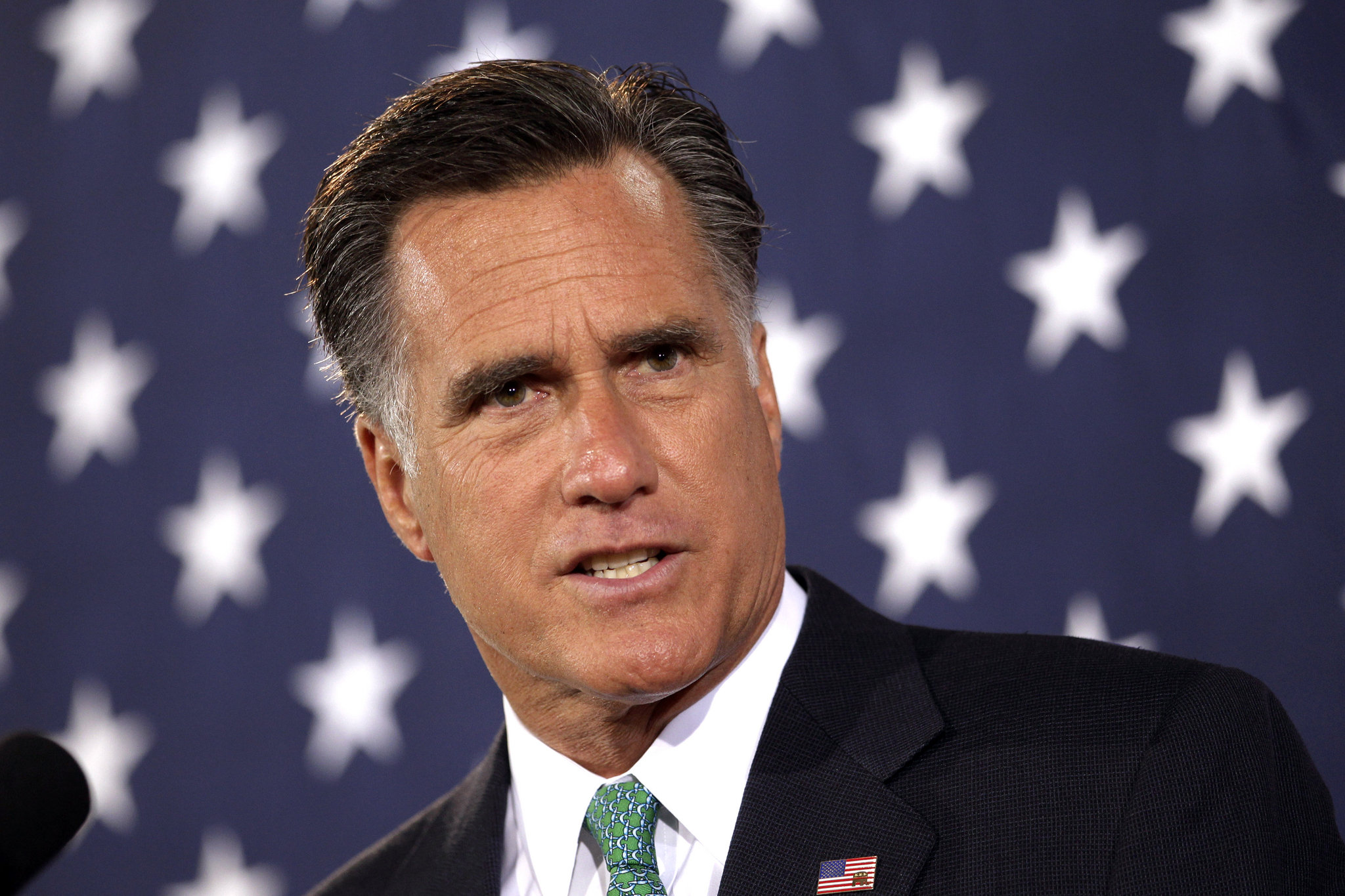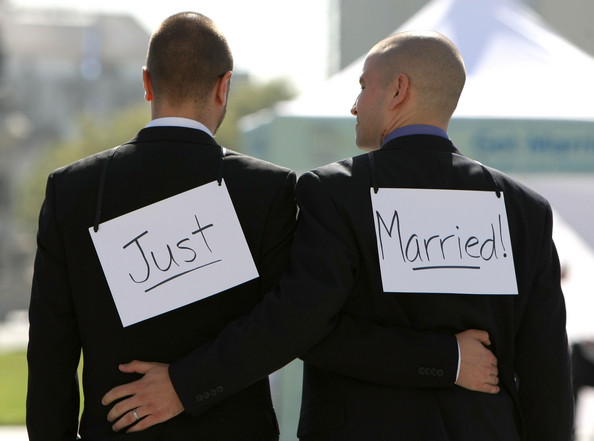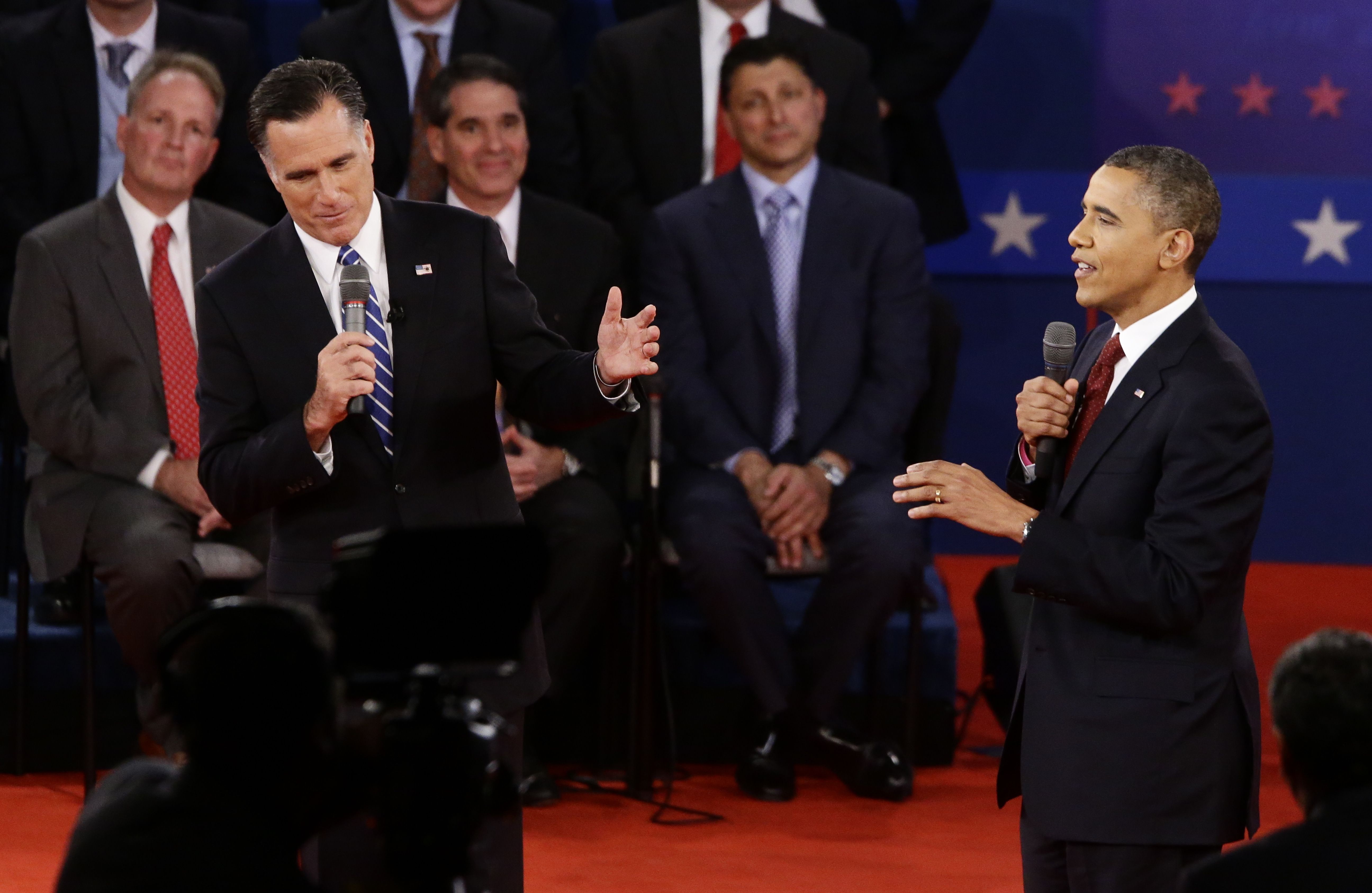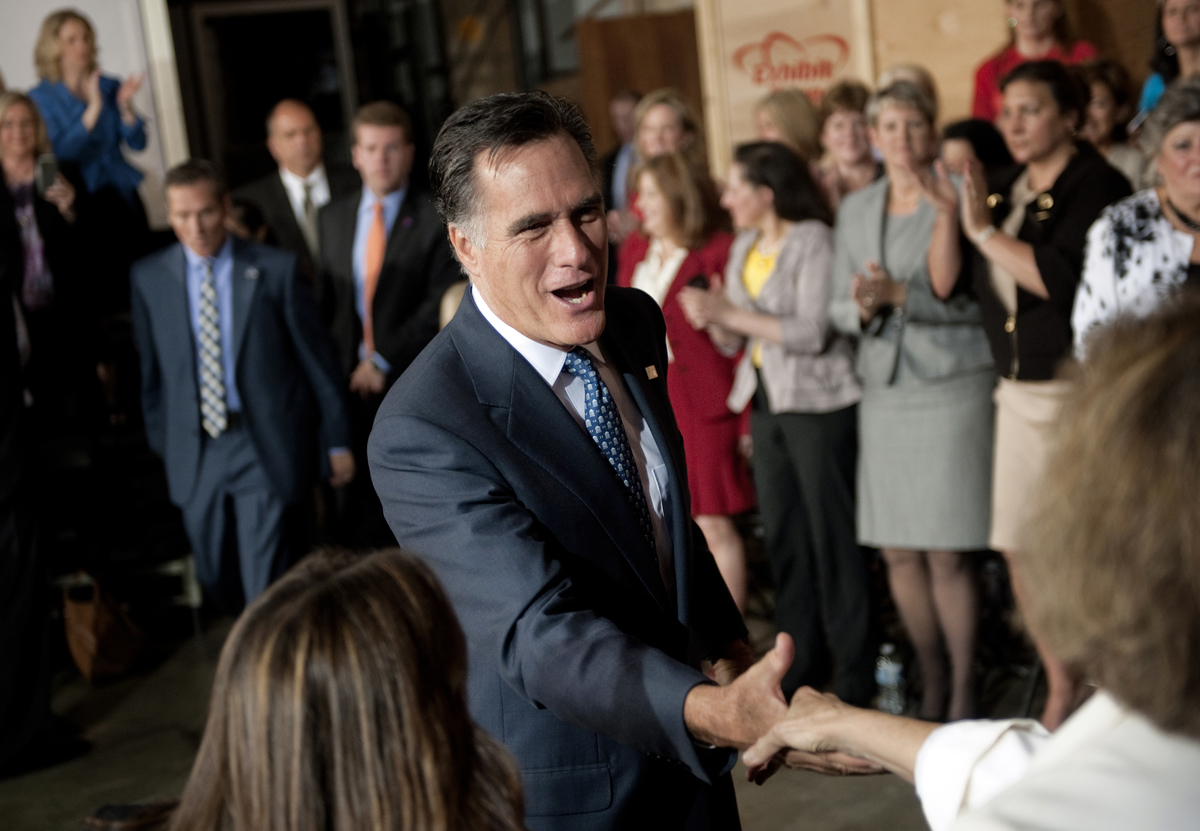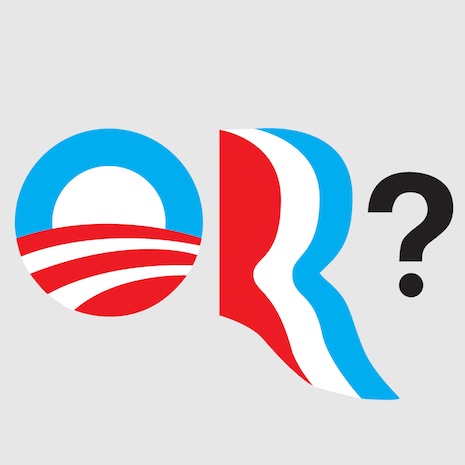That the election of November 6, 2012, has the potential to be a definitive moment in American history is now almost a truism. This conception may sound overblown to the ignorant and disengaged, but in fact it is a great understatement. As America is the only nation left in which freedom is still on the ballot, this definitive U.S. election means even more, in truth, than most voters may realize. It is a referendum on the survival of modern civilization.
A recent blog post at the Weekly Standard displays the results of a BBC election poll taken in various countries around the world. The results demonstrate that if the rest of the world were allowed to vote, Barack Obama would win in a Saddam-like landslide.
Throughout what is left of the civilized world, Obama’s superiority to Mitt Romney, and in general Democrats’ superiority to Republicans, is the default assumption, regarded as beyond question. One who objects to that opinion has a lot of explaining to do. And one who dares to admit thinking the United States of America a very agreeable proposition is regarded as either an infidel or a dope.
These two presuppositions – that the Democrats are the good guys, and that America is essentially a bad thing – should always be understood as a pair. Together, they reveal exactly what the modern Democratic Party and the American media have spent decades trying to hide from their fellow citizens – namely, that to prefer the Democrats is to dislike America.
That international landslide of support for Obama is a clue to what this U.S. election represents to that minority of us among foreigners who understand what anti-Americanism really means. Other nations have their advantages – Korea’s low tax rates have helped her to grow from third-world to top-tier economy in little more than a generation; Canada’s banking system weathered the 2008 recession better than America’s – but there is only one nation in which individual freedom is regarded not as a „system” or a „policy,” but as a pre-political principle, a true foundation. If you share this principle, then America is, at present, your only practical hope for the future of mankind.
But what is „America” to such a foreigner? The classic comprehensive answer to that question is Alexis de Tocqueville’s Democracy in America. The worthiest recent attempt at an answer is probably Mark Steyn’s After America. Tocqueville surveyed the American scene during the flawed, faltering glory of the nation’s rise. Steyn’s analysis, by contrast, is a (barely) premature autopsy.
What these two books, and other contributions to the tradition Tocqueville began, have in common is their shared theme: freedom.
Great nations cannot be understood independently of the defining spiritual impulse that creates and propels them. Any worthwhile analysis of ancient Greek civilization, for example, must contribute to our understanding of the central theme of Greece: the flowering of the human soul. The long history of the Greek world, seen from the outside, embodies the process whereby humanity came into its own. At last, representation became art – man’s attempt to understand his relationship to the divine, to other men, and to himself; and knowledge evolved from an acceptance of ancient rules and customs into a submission of nature’s and man’s rules to the rigors of rational inquiry.
Comparable themes will be found in the examination of any of history’s great nations. An outsider, either historically or geopolitically, can sometimes perceive the arc of a nation’s grand theme – and the risks that endanger the development of the theme – more easily than men presently traveling that arc. Thus, the foreigner’s perspective on the nation’s problems is sometimes more „global” – not in Obama’s sense of reducing a great nation to just another tick on the U.N. roster, but rather in the sense of seeing what the world stands to lose should this nation fall.
In America’s case, once again, the theme is freedom – the purposeful application of the notion of the inviolability of the individual to the establishment of a civil society.
The foreigner’s perspective on this is peculiar – privileged precisely as it is deficient. Citizens are positioned to see more clearly the „small war,” the growth pains inherent in the development – and the death pangs inherent in the downfall – of their society. An outsider, if he is thoughtful, open, and respectful of his subject, can sometimes catch sight of a crystal that perhaps is seen more easily from beyond. (This is not to say that serious citizens cannot make the intellectual leap to that bird’s-eye view, too. The enormous popularity of Mark Levin’s Liberty and Tyranny is a testament to that.)
But in the case of America, the outsider (or new arrival) has another practical advantage – namely, an insight into the subtleties of decayed or extinguished liberty which may be overlooked by those still at an earlier stage of decline. Tocqueville, a Frenchman, saw firsthand how a revolution in the name of liberty and equality can produce an outcome far murkier than the promise implied in its noblest declarations. Thus, even in the obscurest minutiae of his travelogue of the American spirit, one senses the deep, satisfied inhalations of a man finding the fresh air he had spent his young life seeking without avail at home.
Regarding today’s America, the foreigner has lived and can warn of the practical manifestations of Tocqueville’s chillingly accurate speculation about how a constitutional republic might give way to tyranny – to what Tocqueville famously calls „soft despotism.”
It is no accident, for example, that Steyn, a Canadian, has been perhaps the strongest, most relentless voice over these past few years on the dangers of ObamaCare. I, too, have returned to health care again and again. To have lived in a socialized medical system is to have witnessed the heart of the stealthy darkness Tocqueville foresaw. Socialized medicine is the demise of individual liberty in the guise of „equal access,” a gluttonous economic shark masked as „affordability,” and a final denial of the dignity of all human life, euphemized as „universal care.”
Government health care is a perfect microcosm of what real oppression will look like on a daily basis, an important and constantly needed reminder for people still hoping to preserve the idea of freedom in their own country. Those whose air has at least been perfumed with the (dissipating) vapors of genuine liberty all their lives can easily regard oppression as more foreign and strange than it really is. The natural tendency among citizens of „the land of the free” to identify tyranny primarily with the nightmare world of Kristallnacht or the Ukrainian forced famine has facilitated the efforts of freedom’s enemies to push America onto its current collision course with the more quotidian brutalities of „soft” oppression.
Inhumanity always seems more distant from us than it really is, which is why a still-humane nation can be caught so flat-footed by its arrival, as America was by the rise of a mellifluous-toned, well-dressed son of communist revolutionaries and their fellow-travelers in the global caliphate movement.
The lesson Americans most need to digest, and that many have had to learn the hard way, is one made plain and practical in the debate over government-run health care. As we who have lived it can attest, modern socialist oppression does not bring the secret police to your door. The old folks will not be rounded up. Rather, the tax collectors and regulators are at your door – all the time, intractably, until their omnipresence in your payslips and personal decisions feels so normal that you no longer question the loss of property rights and self-determination, and would even suspect or hate the man who would propose to remove that smothering security blanket.
As for the old folks, they become the subject of a neat and tidy cost-benefit analysis, cared for just as long as budgetary considerations permit, while their families are provided with a clean, guilt-free break from one of family life’s chief raisons d’être and responsibilities, in the form of „palliative care” – i.e., the death panel’s debt collector. (I explain this here.)
As Tocqueville predicted to grim perfection, modern man will not easily submit to a yoke under the threat of harm, but he will do so all too easily under the promise of a life without anxiety or inconvenience.
Liberty is too great a good to be relinquished knowingly. Americans will always be prepared to defend against direct threats to their freedom. But through its great gifts of material prosperity, peaceful coexistence, and the near-universalization of the luxury of leisure – in the Aristotelian sense of the practical opportunity to pursue happiness – liberty tends to promote a character of optimism and good faith that leaves a free people prey to those who, frustrated with the limits of self-development, seek to realize their wills through coercion.
Old-style violent uprisings would never work in a free nation. Modern enemies of freedom have had to devise more cunning means to their ends. (Witness Bill Ayers.) And so they have: producing a morally and intellectually corrupting lexicon that bears a superficial resemblance to the language of freedom (progress, individuality, positive „rights”); instituting vast property-annihilating programs in the name of creating „opportunity” and „justice”; and tarting up the class warfare methods of the Bolsheviks with the soothing vocabulary of „the middle class,” thus slowly enticing liberty down the white-picket-fenced path to death by regulatory bureaucracy.
This last point is the vital warning from America’s foreign friends, from Tocqueville to the present. Yes, defeating Barack Obama is necessary; he and his backers are the most highly-placed „enemy within” that America has ever faced. On the other hand, the climate that made Obama possible was more than a momentary case of white guilt, media complicity, Bush-fatigue, or Muslim Brotherhood subterfuge. A very substantial percentage of Americans have been tranquilized by the soporific spell of „left vs. right” party politics, which induces a belief in the legitimacy of all views that do not directly deny your right to vote, as though freedom were reducible to the maintenance of periodic elections. (Every nation has periodic elections.)
Why did supposed conservatives, such as David Brooks and Peggy Noonan, support Barack Obama in 2008? Brooks’ famous rumination on Obama’s well-creased pant leg speaks volumes. For Brooks, seeming „presidential” was enough. Being presidential, in the American sense of that term – preserving the Constitution, espousing the principle of limited government, and believing that the defense of America as a land of liberty is his defining role – is no longer even part of the equation for Brooks, for his readers, or, apparently, for tens of millions of Americans on „both sides of the aisle.”
Treating leftist authoritarianism as one side of the nation’s healthy political debate is by definition a violation of the American founding. Socialism cannot be put into practice to any degree without violating the Declaration’s primary rights and the Constitution’s delineations of the role of government. By allowing leftist policy to metastasize through all branches of the federal government for generations, a large portion of the population – including, sadly, many who see themselves as conservatives – have unwittingly forsaken most of what America, as a philosophical idea, stands for.
The leftist regulatory apparatus is already woven so thoroughly into American life – redefining and delimiting America beyond the reach of the Founding Fathers, let alone of any elected official – that the sturdiest, most clear-eyed Americans of this moment have come to see the election of a new president as merely one small victory in what must be a long, almost unwinnable war. Their perception is accurate.
The idea which we now call „individualism” was not born in America. Nor was the goal of political liberty. Nevertheless, these two principles have died in every other country on Earth. There is no other nation in which these grand ideas have remained an essential part of either the political system or the moral code. It may be difficult for an American to see what this means to those of us abroad who share these ideas.
It means this: America is the last practical refuge of our hopes. In every other nation, to advocate for individual liberty, to plead for property rights, or to speak out against socialism’s inherent violation of the foundations of civilization is increasingly to brand oneself an unenlightened crank at best, and perhaps a sociopath. If American society completes its slow shift into that same perspective, then we are all doomed. If the American majority finally comes to absorb the view, already accepted as policy by the Department of Homeland Security, that „reverence of individual liberty” and „suspicion of centralized federal authority” are indicators of an antisocial threat, then there will literally be nowhere left on Earth where one is allowed to love freedom without ostracism, or worse. There will be nowhere left on Earth where Jefferson, Madison, or Washington may speak or be spoken of without ridicule.
Thoughtful non-Americans know from experience and reasoning that livable conditions in their own nations will be sustained, if at all, only as long as America refrains from following the West’s oppressive path to regulatory oblivion and resists late modernity’s craving for the false comforts of „soft despotism.” Those comforts are false on two levels: first, they are gained by means of a gun aimed at you and everyone else; second, they will be short-lived. The last gasp of freedom means the loss of all the goods that only freedom can provide – prosperity, peace, leisure.
A man is hanging from a cliff, with only his fingers still gripping solid rock. The prevailing impetus is all downward, but the man continues to dangle in one place as long as that grip holds out. If he lets go, however, his fall will be short and decisive.
Modern civilization is that man. America is his final, desperate grip. On November 6, 2012, that man will either be left alone to continue his brave, heartbreaking struggle for another day, or a boot will come down on his fingers.
I described America’s prospect as an „almost unwinnable war.” Dire as this may sound, there is actually something liberating in that little word, „almost.” The Tea Party is a testament to that feeling of liberation. Near-defeat brings priorities into focus. It sweeps away the smoke of the inessential, so that the path to the primary goal becomes clear.
The first, nearly completed, step is to prevent that „almost” from becoming an „absolutely.”

